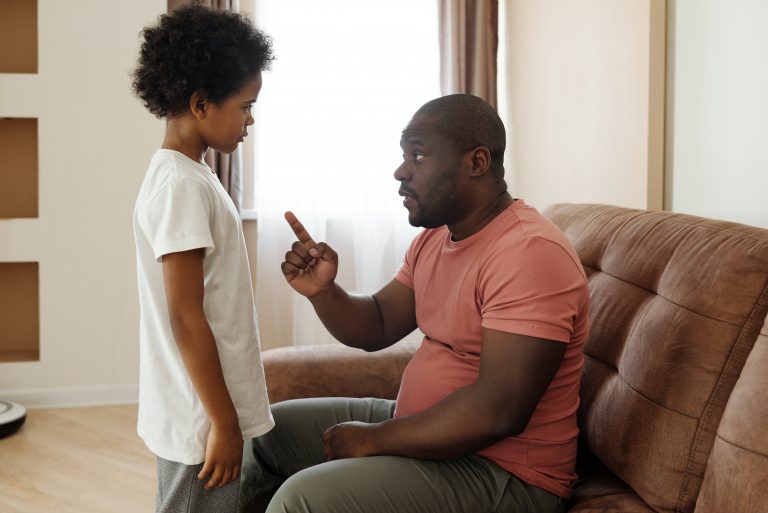
By Danielle Moore // SWNS
Nearly seven in 10 American parents believe talking to their kids about politics is more difficult today than it was for their own parents, according to new research.
Eighty percent of the 2,000 parents polled said they are concerned about the current political climate in the U.S., with 44% of those saying they are “very concerned.”
And more than half said they find it “painful” to discuss the current political divides in the country with their child.
Conducted by OnePoll, the survey also investigated the context, content and outcomes of political conversations happening between family members since the beginning of the COVID-19 pandemic.
On average, Americans have discussed politics with their child eight times over the course of the past four months.
Nearly one in five parents said it was their own child who initiated the conversation by asking them a question about politics.
When it came to the content of these conversations, racism and related issues were at the top of the docket.
About seven in 10 parents have discussed Black Lives Matter and racism in America with their children over the past four months — and 67% have even discussed police brutality with their child.
Approximately six in 10 have talked about white privilege and slavery, and one in four parents said it was the first time they had ever discussed the latter topic with their child.
More than half have discussed LGBTQ+ rights, wealth inequality in the U.S. and immigration policy with their child during this time period.
The outcomes of these conversations appear to be largely positive for the children of respondents, with more than half of parents (54%) reporting that their child is interested and eager to learn more when they discuss political issues with them.
Nearly one in three parents, however, said they themselves are “disheartened” by the state of the country, and sadder still that they need to explain it to their child.
And while 44% of respondents were happy to have the opportunity to discuss these topics with their child, about one in eight parents said they are “angered” by the state of the country, and angrier still that they need to explain it to their child.
The survey also examined respondents’ political discussions with other members of their families, including their own parents.
Twenty-nine percent of respondents have fought with a family member other than their child over their political views in the past four months, and nearly three in 10 (28%) have cut a family member off during this time due to the political opinions they’ve expressed.
And close to one in five respondents said they have never discussed politics with their own parents.
More than half of respondents (54%) said their parents have influenced their political views, but 44% said this influence was in a direction opposite their parents’ views.
It turns out, in this respect at least, the apple doesn’t fall far from the tree.
While 51% of respondents agreed with the statement, “It is important to me that my child holds the same political views that I do,” 42% said their child’s political beliefs differ from their own.
TOP REASONS PARENTS BEGIN TO TALK TO KIDS ABOUT POLITICS
- Child asked a question about politics (19%)
- To ensure child’s political opinion isn’t influenced by biased media sources (16%)
- Parent or other family member was impacted by a political situation (10%)
TOP POLITICAL ISSUES DISCUSSED DURING THE PANDEMIC
- COVID-19 lockdown and stay-at-home orders (79%)
- Black Lives Matter movement (74%)
- Debate over government reopening following COVID-19 (73%)
- Racism in America (70%)
- The 2020 presidential primary and/or election (67%)
- Police brutality (67%)
- White privilege (61%)
- Slavery (59%)
- Wealth inequality in the U.S. (56%)
- DACA/immigration policy (54%)



















